World Cancer Day
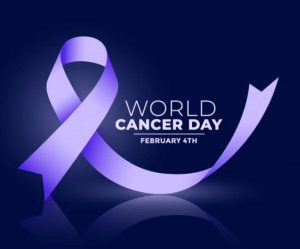
World Cancer Day is an international observance held on February 4th annually to raise awareness about cancer and to encourage its prevention, detection, and treatment. The aim of this day is to save millions of preventable deaths each year by raising awareness and education about the disease, pressing governments and individuals across the world to take action.
World Cancer Day is an annual event held on February 4th to raise awareness about cancer and to encourage its prevention, detection, and treatment. The day is organized by the Union for International Cancer Control (UICC) and aims to save millions of preventable deaths each year by raising public awareness and education about the disease. The theme for World Cancer Day 2023 is “I Am and I Will” which encourages individuals to take action and make a personal commitment to reduce the impact of cancer.
Caused:
There is no single cause of cancer, as it is a complex disease that can develop from a combination of genetic and environmental factors. Some common risk factors for cancer include:
- Tobacco use
- Unhealthy diet and physical inactivity
- Alcohol consumption
- Infections (e.g., human papillomavirus, hepatitis B and C)
- Exposure to radiatioin and certain chemicals
- Family history of cancer
- Age
It’s important to note that having one or more of these risk factors does not necessarily mean a person will develop cancer, but they can increase the likelihood of developing the disease.
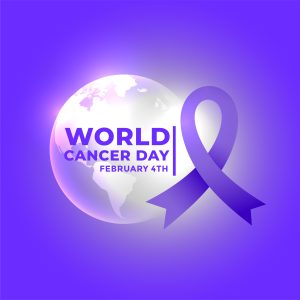
Some key words and phrases related to World Cancer Day include:
Awareness : Awareness is an important aspect of World Cancer Day, as it helps to raise public knowledge and understanding about the disease. By raising awareness, people can learn about the causes and risk factors of cancer, as well as the importance of early detection, proper treatment, and support for those affected. The goal of increasing awareness on World Cancer Day is to empower individuals to take control of their own health and make informed decisions that can help reduce the impact of cancer in their lives and in the lives of those around them.
Prevention: Prevention is a key focus of World Cancer Day, as it aims to reduce the number of cancer cases by promoting healthy lifestyles and behaviors. Some ways to prevent cancer include:
- Not smoking or using tobacco products
- Maintaining a healthy diet with plenty of fruits and vegetables
- Engaging in regular physical activity
- Limiting alcohol consumption
- Protecting skin from the sun
- Getting vaccinated against certain viruses (e.g. HPV)
- Avoiding exposure to harmful chemicals and pollutants
- Getting regular cancer screenings, especially for cancers that are more common with age (e.g. breast, prostate, colon)
It’s important to note that not all cancers can be prevented, but making lifestyle changes and being proactive about one’s health can significantly reduce the risk of developing the disease.
Early detection: Early detection is a crucial aspect of cancer care, as it can greatly increase the chances of successful treatment and improve outcomes.
Some common methods of early cancer detection include:
- Cancer screening tests, such as mammograms, colonoscopies, and PAP smears
- Regular check-ups and physical exams
- Paying attention to changes in the body, such as lumps or persistent symptoms
- Talking to a doctor about personal and family medical history
It’s important for individuals to be proactive about their health and to talk to their doctor about what types of cancer screenings and exams are appropriate for them based on their age, gender, family history, and overall health. Early detection can save lives by allowing for prompt treatment and management of the disease.
Treatment: The treatment of cancer varies depending on the type and stage of the disease, as well as the patient’s overall health and personal preferences.
Some common forms of cancer treatment include:
- Surgery to remove the cancerous tissue
- Radiation therapy to kill cancer cells with high-energy rays
- Chemotherapy to destroy cancer cells with drugs
- Immunotherapy to help the body’s immune system fight the cancer
- Hormonal therapy to block hormones that help some types of cancer grow
- Targeted therapy to specifically target cancer cells without harming healthy cells
- Stem cell or bone marrow transplant to replace damaged or destroyed cells with healthy one
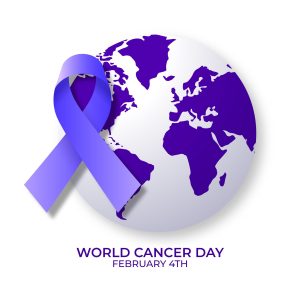
Treatment plans are often customized to each individual patient and may involve a combination of these approaches. It’s important for individuals to work closely with their healthcare team to make informed decisions about their cancer treatment and to receive the best possible care.
Personal commitment: “I Am and I Will” is the theme for World Cancer Day 2023, which emphasizes the importance of personal commitment in reducing the impact of cancer. Personal commitment refers to the actions individuals can take to make a positive difference in their own lives and the lives of others. This can include making healthy lifestyle choices, advocating for better cancer policies and resources, supporting cancer research, and being there for loved ones affected by the disease.
Making a personal commitment to reducing the impact of cancer can have a ripple effect and help create a world where cancer is no longer a threat to individuals and communities. By taking simple steps to reduce their cancer risk and by supporting others, individuals can play a critical role in the fight against cancer.
Unite: “Unite” is a key aspect of World Cancer Day, as it emphasizes the importance of coming together to fight against the disease. This includes individuals, organizations, and governments working together to raise awareness, improve access to care, and support those affected by cancer.
Uniting against cancer means creating a world where everyone has the information, resources, and support they need to prevent, detect, and treat the disease. This includes promoting healthy lifestyles, investing in research and innovation, and ensuring equitable access to care for all people, regardless of where they live or their economic status. By working together, we can reduce the burden of cancer on individuals, families, and communities.
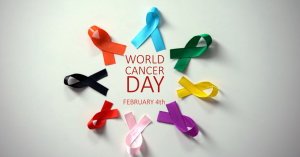
Fight against cancer: The “fight against cancer” refers to the collective efforts of individuals, organizations, and governments to prevent, detect, and treat cancer. This includes promoting healthy lifestyles, investing in research and innovation, advocating for better cancer policies and resources, and supporting those affected by the disease.
Fighting against cancer requires a coordinated and sustained effort from everyone, as cancer has a significant impact on individuals, families, and communities. By taking action to reduce the risk of cancer, increase early detection and access to care, and support those affected by the disease, we can work together to make a difference in the fight against cancer.
On World Cancer Day, people around the world join together to raise awareness about the disease and to call for action to improve the lives of those affected by cancer. By working together, we can create a world where cancer is no longer a threat.
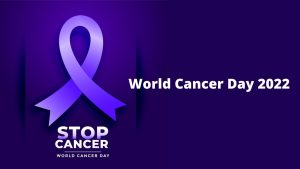
Global health: Cancer is a global health issue, affecting millions of people around the world. It is one of the leading causes of death globally and has a significant impact on individuals, families, and communities.
Global health refers to the health and well-being of populations around the world, with a focus on improving health and reducing health inequities. In the context of cancer, global health efforts focus on improving access to quality cancer care and reducing the impact of the disease on individuals, families, and communities, regardless of where they live or their economic status.
This includes promoting healthy lifestyles to reduce the risk of cancer, increasing access to early detection and treatment, and investing in research and innovation to find new and better ways to prevent, detect, and treat the disease. By working together to address the global health issue of cancer, we can improve the lives of those affected by the disease and create a world where cancer is no longer a threat.
Support : Support is an important aspect of the fight against cancer. This includes providing emotional, practical, and financial support to those affected by the disease, as well as advocating for better cancer policies and resources.
For individuals affected by cancer, support can come in many forms. This includes having a strong support system of friends and family, access to quality cancer care and treatment, and resources to manage the physical, emotional, and financial impact of the disease.
For society as a whole, support means advocating for better cancer policies and resources, investing in cancer research and innovation, and supporting organizations that provide cancer care and support to those affected by the disease.
By providing support, we can make a difference in the lives of those affected by cancer and help create a world where cancer is no longer a threat. On World Cancer Day, people around the world come together to show their support and to call for action to improve the lives of those affected by the disease.
Hope: Hope is a crucial aspect in the fight against cancer. For individuals affected by the disease, hope can provide comfort and motivation during difficult times and help sustain them through the journey.
Hope can also inspire action and drive progress in the fight against cancer. By working together to improve access to quality care, invest in research and innovation, and support those affected by the disease, we can give hope to individuals and families facing cancer and help create a world where cancer is no longer a threat.
On World Cancer Day, people around the world come together to show their hope and to call for action to improve the lives of those affected by the disease. By working together, we can create a future where cancer is no longer a threat and where hope is a source of strength and inspiration for everyone affected by the disease.
Education: Education is an important aspect in the fight against cancer. By educating people about the disease, we can raise awareness, improve prevention and early detection, and support those affected by the disease.
Education can include providing information on healthy lifestyles to reduce the risk of cancer, increasing knowledge about cancer symptoms and early detection, and raising awareness about the impact of the disease on individuals, families, and communities.
Education is also important for health professionals and researchers, as it can help improve the quality of cancer care and drive innovation in cancer research.
On World Cancer Day, people around the world come together to educate and raise awareness about the disease. By working together to educate others and increase knowledge about cancer, we can make a difference in the fight against the disease and create a world where cancer is no longer a threat.
Unity: Unity is a key aspect in the fight against cancer. By coming together and working as a united front, we can make a greater impact in the fight against the disease and improve the lives of those affected by it.
Unity involves individuals, organizations, and governments working together towards a common goal of reducing the impact of cancer on individuals, families.
For more blogs visit here:https://www.bloggbuzz.com/

